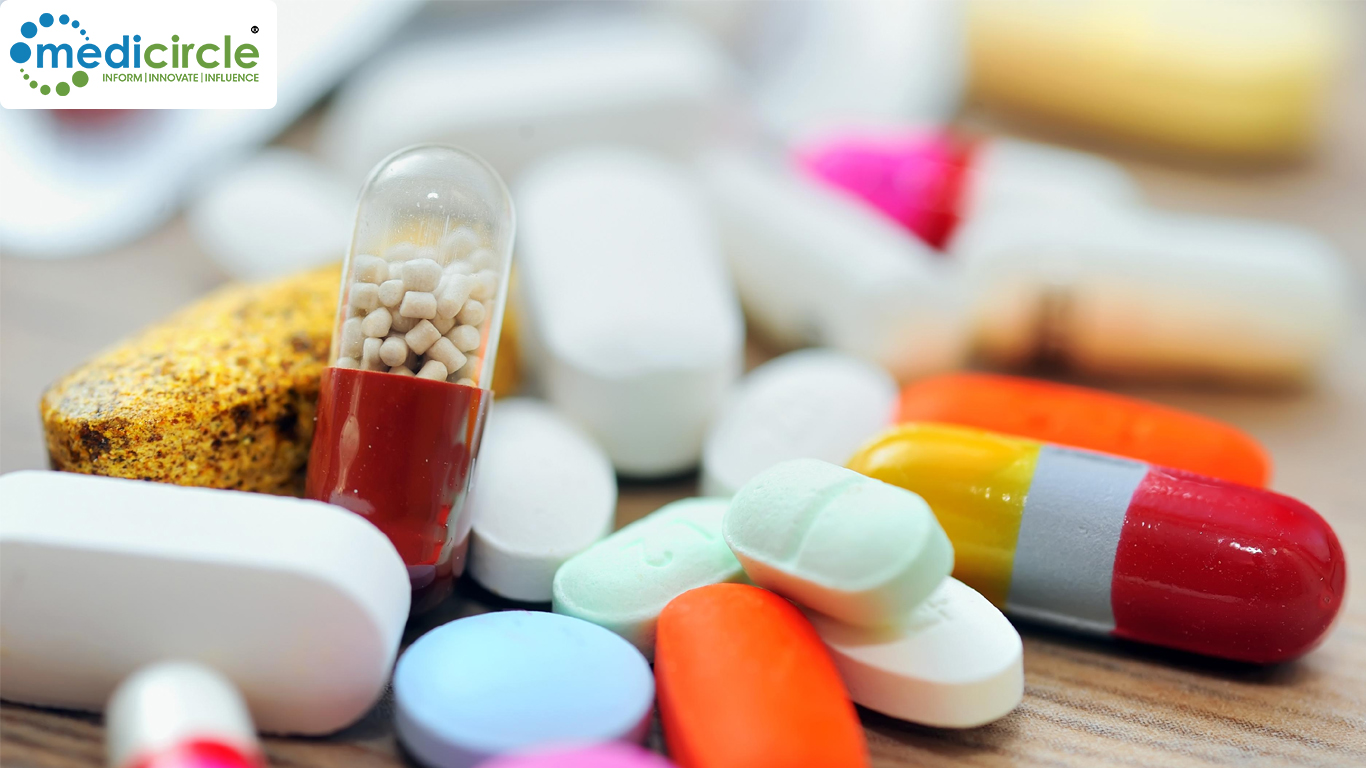India’s pharmaceutical industry has long been one of the largest and most trusted suppliers of affordable medicines worldwide. From vitamins and antacids to diabetes and hypertension drugs, millions rely on these medications for their daily health management. However, a new wave of alarm has emerged, sparking concern among patients, doctors, and pharmacists alike. Recent findings by India's Central Drugs Standards Control Organisation (CDSCO) have revealed that over 50 commonly used drugs have failed to meet safety and quality standards.
These failed tests expose a deeper issue: Are we unknowingly consuming drugs that fall short of required safety norms? Let's dive into the unsettling reality of substandard medicines, the reasons behind the failings, and the broader implications for India’s healthcare system.
The Drugs That Failed Quality Tests: The list of medications flagged by the CDSCO is diverse, covering a range of categories that address common ailments. Among the failed drugs are supplements that many consider harmless or essential for health, such as calcium and Vitamin D3 supplements, as well as drugs used to manage chronic conditions like diabetes and high blood pressure.
Some of the major drugs that have failed quality tests include:
1. Vitamin D3 Tablets (Shelcal) – Shelcal, a popular Vitamin D3 supplement, did not pass the regulatory test, raising concerns as it's widely consumed for bone health.
2. Anti-diabetic Drug (Glimepiride)– Glimepiride, a widely prescribed medication for diabetes, was among the drugs found to be of substandard quality.
3. Telmisartan (High Blood Pressure Medication) – Telmisartan, used by countless individuals to manage hypertension, also failed the quality test, highlighting risks to people with heart conditions.
4. Paracetamol (500 mg) – Paracetamol is a household staple for reducing fever and pain. Discovering that it has failed to meet quality standards has shocked the public.
While these drugs are trusted by millions, their failure to meet safety standards shows a significant gap in the manufacturing and quality control processes.
What Does “Not of Standard Quality” Mean?
The designation of “Not of Standard Quality” (NSQ) refers to drugs that don’t meet the safety, potency, or purity standards established by regulatory bodies. The CDSCO conducts routine testing to ensure medications on the market comply with these standards, and their findings are based on random sampling done by state drug officers.
Drugs that fall under NSQ alerts could potentially pose health risks, especially for vulnerable populations like the elderly, children, and individuals with compromised immune systems. These medicines might have lower-than-expected active ingredients, incorrect formulations, or may be contaminated during manufacturing.
The Manufacturers Behind the Failed Drugs: Some of India’s most prominent pharmaceutical companies have found their products failing to meet quality checks. These include:
- Hetero Drugs
- Alkem Laboratories
- Hindustan Antibiotics Limited (HAL)
- Karnataka Antibiotics & Pharmaceuticals Ltd
One particularly troubling instance was Metronidazole, an essential antibiotic used to treat stomach infections, which was produced by Hindustan Antibiotics Limited (HAL). The fact that this widely-used drug failed quality checks raises concerns about the state of India's public sector pharmaceutical manufacturing.
Another case that stands out is Shelcal, a popular Vitamin D3 supplement manufactured by Pure & Cure Healthcare. This supplement, which is regularly consumed for bone health, especially by older adults and those with calcium deficiencies, was flagged for not meeting quality standards, creating a potential health risk for its users.
The issue is not just limited to large pharmaceutical firms. Smaller and lesser-known companies have also had products flagged. However, what makes the situation more disturbing is that in some cases, the companies have outright denied responsibility for the drugs, claiming they are “spurious” or counterfeit versions.
The Threat of Spurious Drugs: The term “spurious” refers to drugs that are falsely labeled or manufactured illegally, often without any oversight or adherence to safety regulations. In response to CDSCO’s tests, several pharmaceutical companies have claimed that the drugs which failed the tests were counterfeit, rather than their own authentic products.
This introduces another layer of concern for consumers. Not only are legitimate drugs failing tests, but there is also the threat of counterfeit drugs circulating in the market. Counterfeit drugs can be life-threatening, as they may not contain the right ingredients, or worse, could be contaminated with harmful substances.
The Growth of Substandard Medications: India's pharmaceutical sector has faced increasing scrutiny in recent years, particularly as several drugs have been flagged for quality issues. In August 2023, the CDSCO banned over 156 fixed-dose drug combinations (FDCs) from the Indian market, citing potential risks to human health. Many of these drugs were commonly used to treat fever, pain, and allergies.
The problem of substandard drugs is not new but has gained more attention in recent years due to an increasing number of reports and regulatory actions. Poor quality control during manufacturing, lack of proper oversight, and the prevalence of counterfeit drugs have all contributed to this growing issue.
The Impact on Public Health: The implications of these failed drug tests are significant. When drugs do not work as intended, the health of patients can deteriorate rapidly. For example, diabetics rely on medications like Glimepiride to manage their blood sugar levels. If the drug is substandard, it could lead to dangerously high blood sugar, increasing the risk of complications such as heart disease, kidney damage, or even coma.
Similarly, for individuals with high blood pressure, taking a medication like Telmisartan that is not up to standard could result in inadequate blood pressure control, leading to an increased risk of stroke or heart attack.
In addition to the physical risks, there are also psychological implications. Patients who learn that their medications are unsafe may lose faith in the healthcare system, potentially leading to non-adherence to prescribed treatments. This could have far-reaching effects on public health, especially when it comes to managing chronic conditions.
There are several steps that need to be taken to address this issue. First and foremost, pharmaceutical companies must be held accountable for the quality of their products. Regular, unannounced inspections of manufacturing facilities should be conducted to ensure compliance with quality standards.
In addition, stricter penalties should be imposed on companies that repeatedly fail quality tests. Fines and sanctions alone may not be enough; companies found to be in violation should face temporary shutdowns or lose their licenses to operate.
Public awareness campaigns are also essential. Consumers should be educated about the dangers of substandard and spurious drugs, and they should be encouraged to report any adverse reactions or issues with their medications to the appropriate authorities.
The recent revelations about drugs failing quality tests in India highlight the importance of vigilance in healthcare. As patients, we place immense trust in the pharmaceutical industry to provide safe, effective medications that improve our quality of life. When that trust is broken, the consequences can be severe.
As India continues to grow as a global pharmaceutical hub, it must also take the necessary steps to ensure the safety and quality of its medicines. Rigorous testing, strict regulatory oversight, and public education are key to safeguarding public health and restoring trust in the system. Only then can we hope to prevent substandard drugs from endangering lives and tarnishing the reputation of an industry that has long been a source of national pride.

 Rigorous testing, strict regulatory oversight, and public education are key to safeguarding public health and restoring trust in the system.
Rigorous testing, strict regulatory oversight, and public education are key to safeguarding public health and restoring trust in the system.










.jpeg)

.jpeg)
.jpeg)
.jpeg)

.jpeg)
.jpeg)
.jpeg)
_(1).jpeg)

_(1)_(1)_(1).jpeg)
.jpeg)
.jpeg)
.jpeg)






